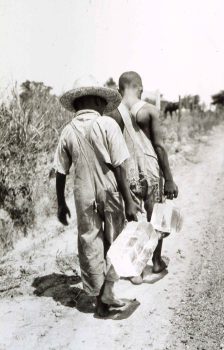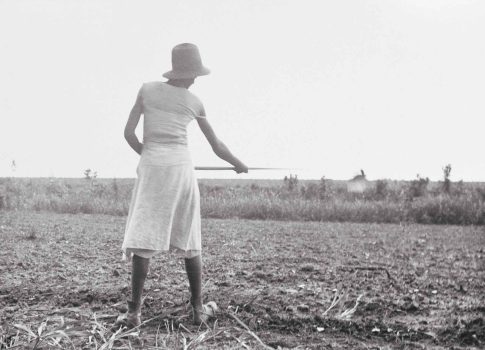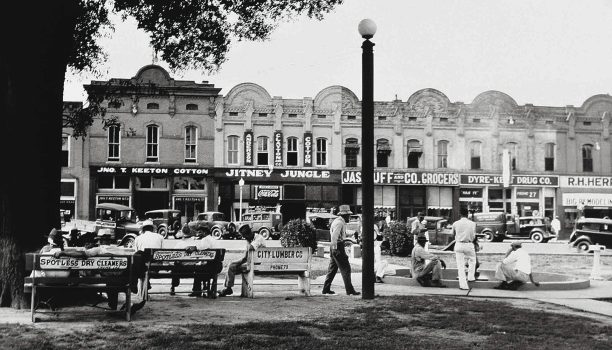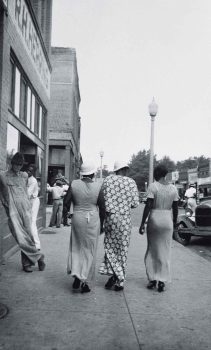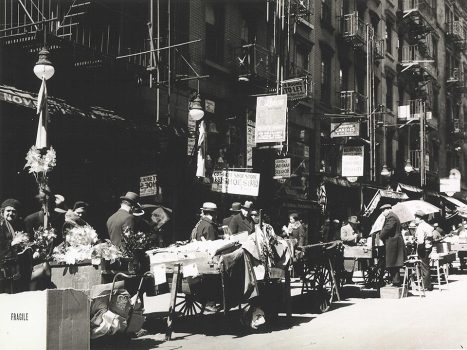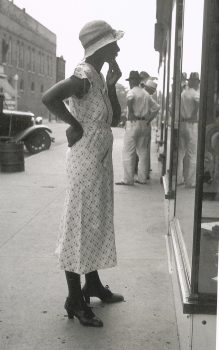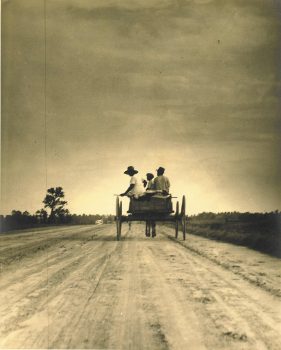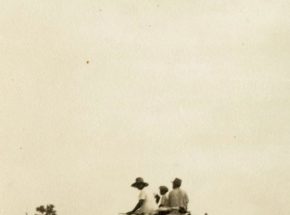
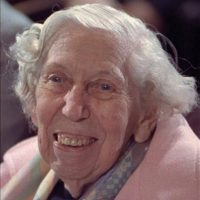
Eudora Alice was the first daughter of Christian, an insurance executive from Ohio, and Chestina, a homemaker from West Virginia, who once raced back into a burning house to save a set of Dickens. She grew up with brothers Edward and Walter in a close-knit, extended family that protected her from outside forces of all sorts. In 1927, Welty left her family for a three-year stint at the University of Wisconsin in Madison and a year of business school at Columbia University in New York City. After her father’s death in 1931, Welty returned home to work for the new radio station and as a publicist and photographer for the Works Progress Administration (WPA). As her literary career took off, Welty would travel widely and hold various teaching posts, but she always returned to her parents’ house in Jackson, where she lived until her death.
The publication of her first story, “Death of a Traveling Salesman,” in the literary magazine Manuscript coincided with Black Saturday, an exhibit of photographs taken on her travels across rural Mississippi for the WPA, mounted in New York in 1936. Further stories met with mixed response, but in 1940 Welty signed on with literary agent Diarmud Russell, an association that would last throughout her career. Her first collection, A Curtain of Green, appeared the next year. While Welty would go on to write successful novels, including the fairy tale set on the Natchez Trace The Robber Bridegroom, the comic masterpiece The Ponder Heart, and the mammoth best-seller Losing Battles, her forte would remain the short story. Her pitch-perfect dialogue and revelatory gaze distilled truth into the voices and lives of her characters.
In 1983 Welty delivered the first annual Massey Lecture in the History of American Civilization at Harvard University. These three lectures, in which she traced the forces that shaped her as a writer, became her best-selling autobiography, One Writer’s Beginnings. Aside from this slim volume, Welty remained quiet on the subject of her own life, saying she wanted “the work to exist as the thing that answers every question about its doing.”
Welty won much praise and many honors over the course of her career, including Guggenheim fellowships, numerous O. Henry Awards and National Book Award nominations, a National Medal for Literature, entry into France’s Legion d’Honneur, and finally, in 1973, the Pulitzer Prize for her novel The Optimist’s Daughter. In her later years, when her typewriter fell silent, Welty remained lively and gracious as ever, as comfortable in conversation with her friends and neighbors in Jackson as in her role as the reigning queen of American letters. She died at the age of 92.
http://www.pbs.org/wgbh/masterpiece/americancollection/ponder/timeline_bio.html
Website
http://www.eudorawelty.org
